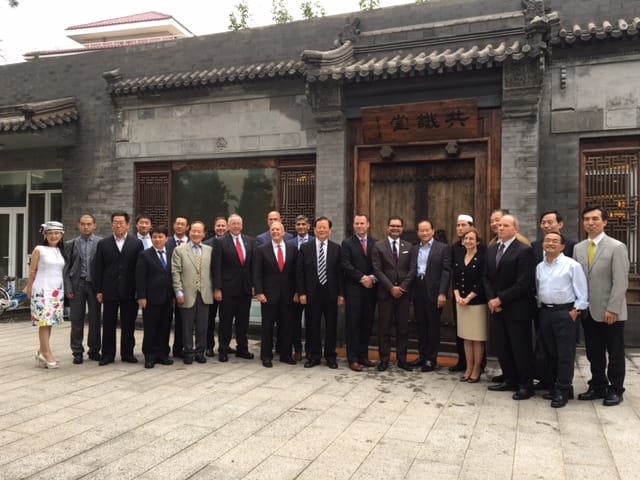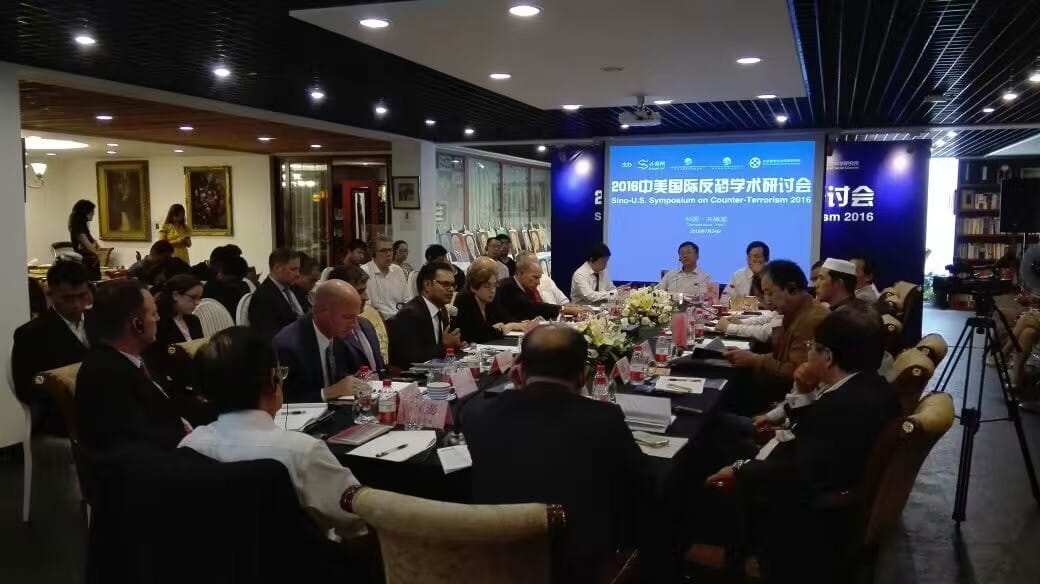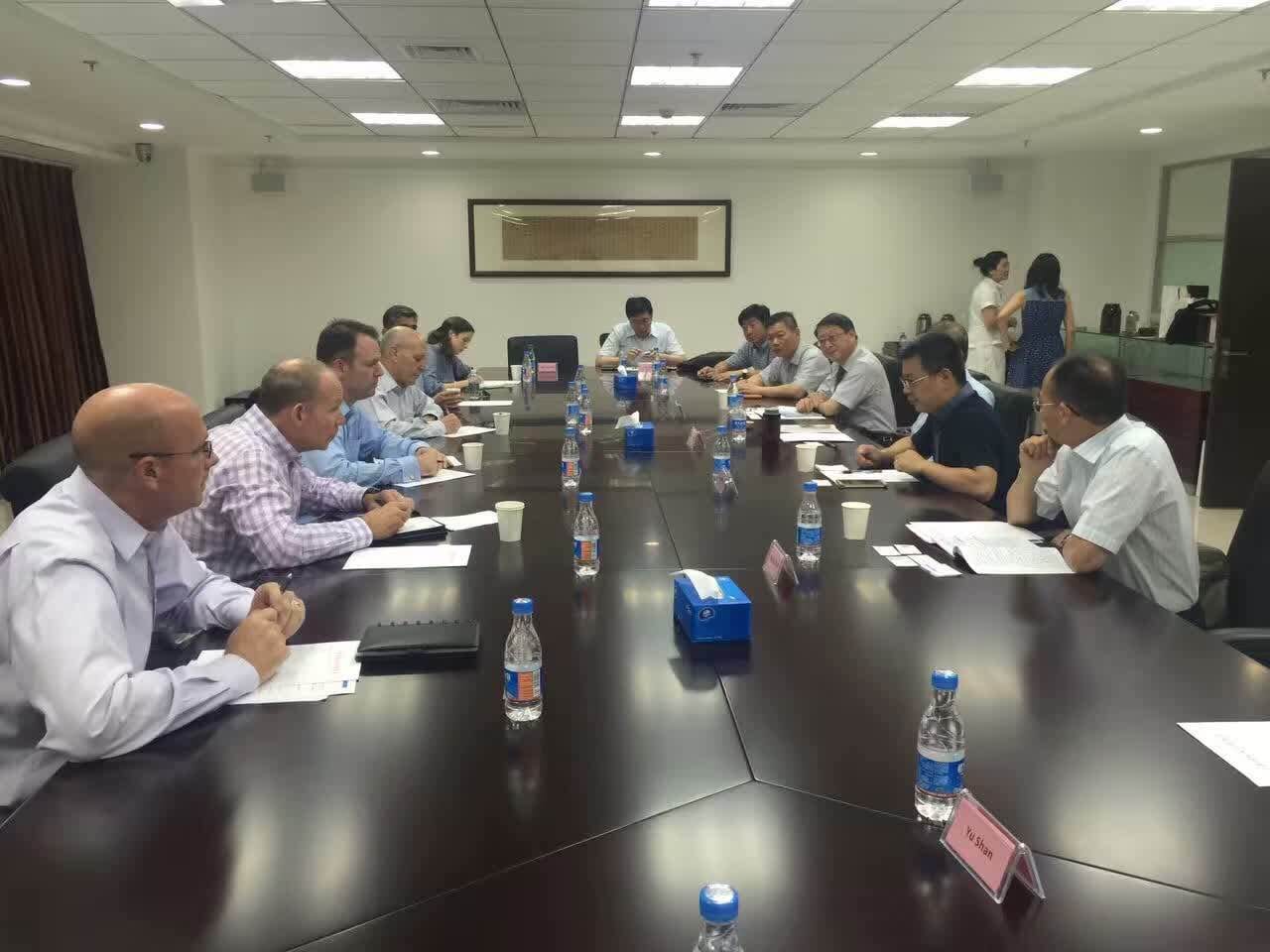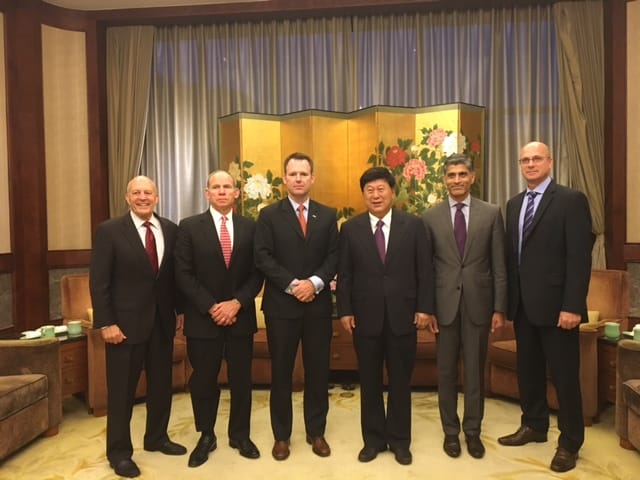IGE Leads Delegation to Third Sino-U.S. Counterterrorism Dialogue
8 August 2016 – For the third year in a row, the Institute for Global Engagement (IGE) led a delegation of U.S. experts to participate in The Sino-U.S. Counterterrorism Dialogue in Beijing, followed by additional engagement with officials and experts in Shanghai. On the Chinese side, the event was convened by Consensus Media Group (CMG), the Pu Shi Institute for Social Sciences (PS), and the Asia Pacific Exchange and Cooperation Foundation (APECF). The purpose of this dialogue was to deepen understanding and engagement between China and the U.S. regarding counterterrorism and countering violent extremism. The “Track 1.5” nature of the dialogue allowed participants to speak more openly about challenges and opportunities.

The Chinese participants also represented a high-level cross-section of experts and practitioners from policy, academia, business, and the military as well as former diplomats, notably: China’s former Special Envoy to the Middle East who is also a former Ambassador to Egypt and Saudi Arabia, the former Dean of China’s National Defense University, and even a Chinese Muslim leader.
IGE’s delegation included current and former government officials, active and retired military, and civil society and business leaders, namely: John Gallagher, IGE President &CEO and former Special Assistant to the Chairman of the Joint Chiefs of Staff; Geoff Davis, former four-term U.S. Congressman; Dr. Marie Richards, current Deputy Counterterrorism Coordinator and career member of the Senior Foreign Service at the U.S. State Department; Vice Admiral (Ret) Michael LeFever, former National Counterterrorism Center official and commander of all U.S. defense forces in Pakistan from 2008-2011; Lieutenant General David Fridovich (Ret), former Deputy Commander of United States Special Operations Command; Mr. Adnan Kifayat, former official at the National Security Council and State Department, now head of global security ventures for the GenNext Foundation; Mr. Suhail Khan, former White House official and Senior Fellow for Muslim-Christian Understanding at the Institute for Global Engagement, and Colonel David Dudas, Ph.D., Associate Dean and Professor, National Defense University.
The dialogue addressed five topics. The first panel on “Global Trends” sought to establish a common understanding of the problem. This panel was followed by a discussion of how “Religion and Ideology” and “Media and Communication” are part of both the problem and solution. The dialogue concluded with panels on “International Partnerships” and “Information Sharing” which explored areas for actionable cooperation. Several important themes emerged from this year’s dialogue, including:
Nations with the capacity for global hard and soft power must work together to address this threat.
Few nations possess the capacity for global hard and soft power that is required to sustainably address the threat of violent extremism and terrorism. These nations must work together to lead the global response, establish international priorities, and develop strategic plans of action. While the U.S. and China have many diverging interests and priorities, counterterrorism and countering violent extremism (CT/CVE) are areas where the two nations should work together, otherwise terror groups will continually seek to exploit the lack of cooperation. Further, communication and confidence-building on CT/CVE can lead to constructive dialogue on more complex U.S.-China issues over time.
Counterterrorism and countering violent extremism (CT/CVE) require an integrated, holistic approach. Recent transregional attacks reveal violent extremism is truly globalized in scope, and no country is immune. China has a growing interest in addressing terrorism, not only because of evolving threats within and outside of its borders, but also because of the potential impact to its investments and interests abroad. Hard power solutions are incomplete and temporary, and can actually feed the extremism that later becomes terrorist violence. Governments and civil society must establish a common definition of the problem, work across the divisions between people of different faiths and backgrounds, and form domestic and international partnerships that enable long-term solutions. Chinese participants compared the needed approach to traditional Chinese medicine guided by the principle of treating not just the symptoms but root causes. U.S. participants added that approaches that do not address governance, economic development, social justice, and the important role of religion will fail.

IGE Delegation Visit to Shanghai
Following the conclusion of the Third Sino-U.S. Counterterrorism Dialogue in Beijing, the IGE delegation traveled to Shanghai from July 25-26 to meet with other leading Chinese scholars and former officials working in the field of counterterrorism. The delegation also discussed other key issues related to U.S.-China bilateral relations including economic interdependence, rising tensions in the South China Sea, and development in Central and South Asia along the Silk Road.
The IGE delegation visited the office of the Shanghai Association for International Friendly Contact where they participated in a roundtable discussion with scholars from the Shanghai Institute for International Studies, the Shanghai Academy of Social Sciences, Tongji University, East China Normal University, and the Shanghai Cooperation Organization (SCO) Studies Center in Shanghai. The two sides agreed that while there are many diverging interests between the U.S. and China, there are also many areas in which the U.S. and China can and should work together as “non-traditional allies.”
The two sides also agreed that addressing the root causes of terrorism and violent extremism is one such area in which the U.S. and China should work together, utilizing their hard and soft power capacity to lead the international community toward strategic, actionable plans to mitigate this resilient and adaptive global threat.

The IGE delegation also visited the Shanghai Urban Planning Museum where they gained a better understanding of the various considerations and planning that has gone into the development of Shanghai, the most populous city in China and among the top-five most populated in the world.
At the conclusion of the visit, the IGE delegation was received at the Hongqiao State Guest Hotel—where foreign dignitaries and heads of state are routinely received—by the former commander of the East China Sea, Vice Admiral (ret.) Zhao Guojun. IGE President John Gallagher and the Vice Admiral exchanged views on U.S.-China cooperation on CT/CVE and also discussed trends in U.S.-China relations. The discussion was followed by a dinner reception for the IGE delegation hosted by Vice Admiral Zhao along with Consensus Media Group and the Shanghai Association for International Friendly Contact.

Overall, IGE’s support to the Sino-U.S. Counterterrorism Dialogues in Beijing is a key part of year-round, sustained engagement with U.S. and global leaders and non-governmental organizations on CT and CVE. As in previous years, this dialogue will help inform understanding and decisions in both the U.S. and China through post-dialogue engagement as well as published reports and media outreach—in parallel with future track-one bilateral engagements. Photos from the event can be viewed via our travel blog.
For more information, please contact IGE’s Vice President for Programs, James Chen at jchen@globalengage.org.